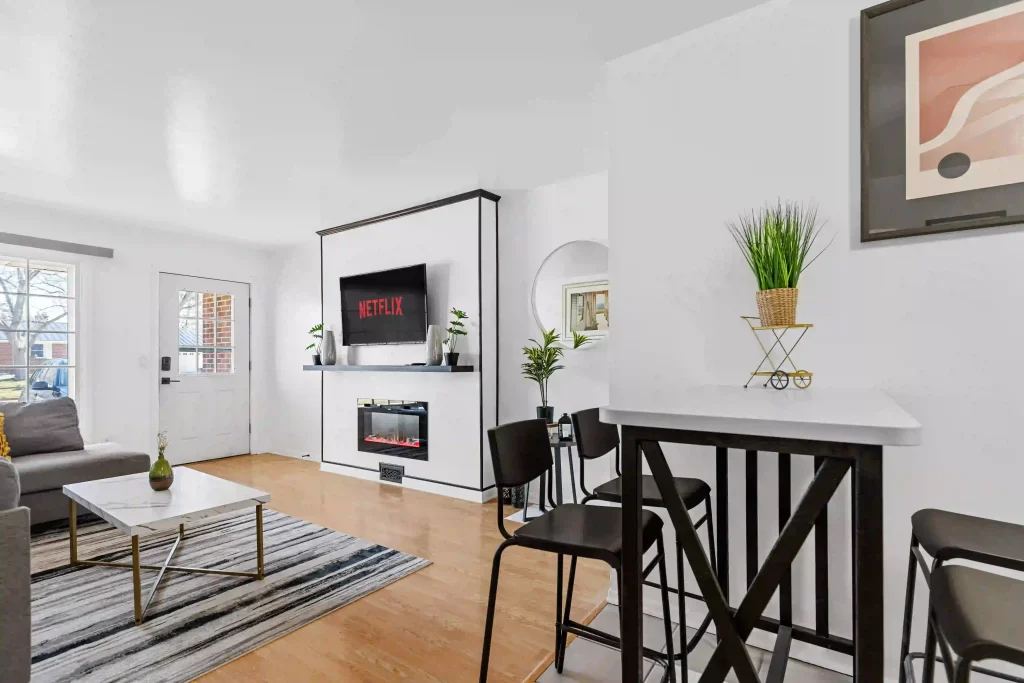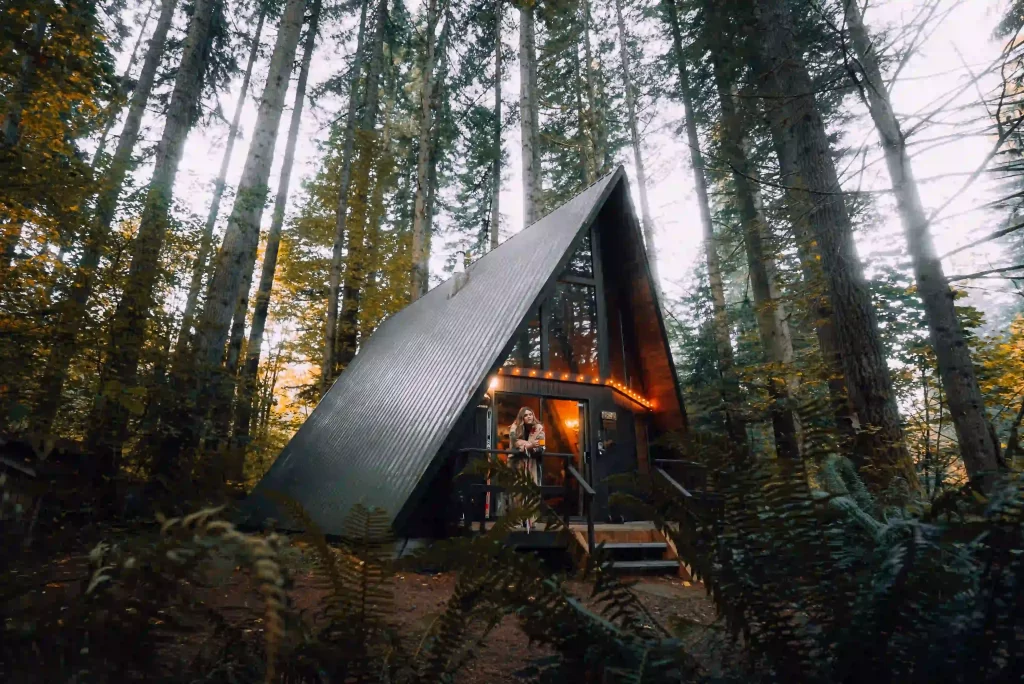Understanding the Impact of Recession on Short-Term Rentals
When it comes to running a short-term rental business, it’s crucial for property owners to be aware of how economic downturns, such as recessions, can potentially affect their venture. The impact of a recession on short-term rentals can vary depending on various factors, but understanding these dynamics is essential in devising strategies to weather the storm.
During times of recession, people tend to tighten their purse strings and cut back on discretionary spending. This can have a direct effect on the demand for short-term rentals, as vacation plans may be put on hold or scaled down.
Families may opt for more affordable options or decide to skip vacations altogether until the economy stabilizes. As a result, short-term rental owners might experience a dip in bookings and occupancy rates.
Furthermore, during an economic downturn, people often focus more on essential needs rather than indulging in luxury experiences like vacation rentals. They might prefer staying at budget hotels or with friends and family instead of investing in a short-term rental property.
This shift in consumer behavior can result in increased competition among vacation rental owners and lead to lower prices and reduced profitability. However, it’s important not to jump to conclusions and assume that every recession will automatically spell doom for your short-term rental business.
While recessions certainly present challenges, they also bring potential opportunities if you adapt your approach accordingly. In the next sections of this article, we will explore strategies that can help you navigate these rough waters and even thrive during economic downturns by highlighting why short-term rentals have advantages over traditional lodging options in such times.

Historical Performance of Short-Term Rentals During Recessions
Short-term rentals, also known as vacation rentals, have become increasingly popular in recent years. With the rise of platforms like Airbnb and HomeAway, property owners have been able to capitalize on the demand for unique and personalized accommodations. However, many wonder how this type of business would fare during an economic downturn or recession.
To answer that question, let’s take a look at the historical performance of short-term rentals during past recessions. During the 2008 financial crisis, the travel industry was hit hard as people tightened their budgets and cut back on discretionary spending.
This inevitably impacted the short-term rental market as well. Many vacation rental owners experienced a decline in bookings and had to adjust their pricing strategies to remain competitive.
However, it’s worth noting that while overall travel may have declined during that time period, there were still segments of travelers who sought out more affordable alternatives to traditional hotels. One interesting trend that emerged during the recession was an increase in “staycations” – where people chose to stay closer to home for their vacations rather than splurging on expensive trips abroad.
This created an opportunity for local short-term rental owners who were able to cater to this market by offering budget-friendly accommodations within driving distance of major cities. Additionally, individuals who had lost their homes due to foreclosure or unemployment often turned to renting out spare rooms or properties through platforms like Airbnb as a way to generate income.

Why Short-Term Rentals Can Thrive in a Recession
During a recession, it’s natural to assume that the hospitality industry would take a hard hit, with people cutting back on travel and discretionary spending. However, it’s important to recognize the unique advantages that short-term rentals offer, which can actually help them thrive during economic downturns. One significant advantage of short-term rentals is their affordability compared to traditional hotels.
When times get tough, people are more likely to look for cost-effective accommodation options. This is where short-term rentals come in.
Whether it’s a cozy apartment in the heart of a city or a charming cottage nestled in the countryside, these properties often provide better value for money than hotels. Vacationers or business travelers can save significantly by opting for a short-term rental instead of costly hotel rooms, making them an attractive choice during recessions.
Additionally, short-term rentals offer greater flexibility and space compared to hotels. In uncertain economic times, families may choose to travel together, or groups of friends may opt for shared accommodation to split costs.
With short-term rentals, property owners can cater to these needs by offering spacious accommodations with multiple bedrooms and common areas. This allows guests to enjoy their privacy while still having communal spaces for socializing and bonding—a crucial aspect during difficult times when people seek connections and support from loved ones.
Moreover, short-term rental properties often come equipped with kitchen facilities. This means guests can save money by preparing their own meals instead of relying on expensive restaurant dining—a valuable perk during financial constraints.
Additionally, having access to amenities such as laundry facilities within the rental property further enhances its appeal as an affordable choice during economic downturns. Furthermore, short-term rental platforms provide increased opportunities for property owners to market their listings directly to potential guests without intermediaries or high fees associated with traditional accommodations like hotels or resorts.
During recessions, when every dollar counts for both hosts and travelers alike, this direct connection between hosts and guests ensures greater transparency in pricing and fosters trust between the two parties. Short-term rentals have the potential to thrive during recessions due to their affordability, flexibility, and value-added features.
By offering cost-effective solutions and catering to the changing needs of travelers, property owners can position themselves favorably in the market. It’s important for short-term rental businesses to capitalize on these advantages and adapt their strategies to cater to guests seeking affordable yet comfortable accommodation options during challenging economic times.

Strategies to Recession-Proof Your Short-Term Rental Business
In times of economic uncertainty, it’s crucial for property owners to take proactive measures to recession-proof their short-term rental businesses. By implementing smart strategies, you can safeguard your vacation rental and ensure its continued success even during a recession.
One strategy is to diversify your marketing efforts. Relying solely on one platform or listing site can leave you vulnerable if that particular market experiences a decline during a recession.
Instead, consider listing your short-term rental on multiple platforms such as Airbnb, VRBO, and Booking.com. This way, you can reach a wider audience and increase the chances of securing bookings even if one platform sees a dip in demand.
Another important strategy is to focus on providing exceptional guest experiences. During a recession, travelers will be more selective about where they spend their money.
By going above and beyond to create memorable stays for your guests, you’ll increase the likelihood of positive reviews and word-of-mouth referrals. This can help attract more bookings and give you an edge over competitors who neglect the guest experience aspect of their short-term rentals.
Additionally, consider offering special deals or promotions during a recession to entice potential guests. Discounts or flexible cancellation policies can be effective ways to incentivize travelers who may be hesitant due to financial concerns.
By being flexible and accommodating with pricing and policies, you’ll position yourself as an attractive option in uncertain times. Moreover, maintaining open communication with past guests can also prove beneficial in recession-proofing your short-term rental business.
Building relationships with previous visitors through email newsletters or personalized follow-ups can keep you at the forefront of their minds when they plan future trips or recommend accommodations to others. Ultimately, by diversifying marketing efforts, focusing on guest experiences, offering special deals when necessary, and nurturing relationships with past guests, property owners can take proactive steps towards protecting their short-term rental business during times of economic downturns like recessions.

How to Add Value to Your Short-Term Rental During a Recession
During a recession, it becomes even more important for short-term rental owners to find ways to stand out and add value to their properties. By offering unique and enticing features, you can attract more guests and potentially increase your revenue. Here are some strategies to help you add value to your short-term rental during a recession.
1. Enhance your amenities: One way to make your short-term rental more appealing is by upgrading and enhancing the amenities you offer. Consider adding luxurious touches such as high-quality linens, plush towels, or even a hot tub or swimming pool if feasible.
Providing these little extras can make a big difference in attracting guests who are looking for an indulgent experience during tough economic times. Additionally, consider equipping your property with modern technology such as smart TVs, sound systems, or high-speed internet access.
In today’s digital world, guests appreciate these conveniences that enhance their overall stay experience.
2. Create a welcoming atmosphere: During uncertain times, people crave comfort and warmth. To create a cozy and inviting atmosphere in your short-term rental, focus on the small details that can make a big impact. Invest in comfortable furnishings like plush sofas and cozy beds that will allow your guests to relax and unwind after long days of exploring or working.
Add personal touches like artwork or decorative items that reflect the local culture or theme of your property. Fresh flowers and scented candles can also go a long way in creating an ambiance of relaxation and tranquility.
Furthermore, pay attention to cleanliness and maintenance – ensuring that your property is spotless is crucial for providing an excellent guest experience. By focusing on enhancing amenities and creating an inviting atmosphere in your short-term rental property during a recession, you can differentiate yourself from competitors while attracting guests who seek comfort and value for their money.
Predicting the Impact of Future Recessions on Short-Term Rentals
As property owners, it’s natural for us to wonder how future recessions might affect our beloved short-term rentals.
While it’s impossible to predict the exact outcome, we can analyze historical trends and make some educated guesses. First and foremost, it’s important to note that short-term rentals have proven resilient during economic downturns in the past.
During times of financial strain, people tend to prioritize accommodation options that offer greater affordability and flexibility. This is where our short-term rentals shine through!
Unlike expensive hotels or long-term lease agreements, vacation rentals provide a more budget-friendly alternative without compromising on comfort or convenience. Additionally, it’s worth considering that during a recession, people may postpone their plans for extravagant vacations abroad.
Instead, they might opt for local getaways or staycations in order to save money. This presents a prime opportunity for short-term rental owners who cater to domestic travelers seeking affordable yet memorable stays in their own backyards.
By marketing your property effectively and highlighting its unique features and attractions nearby, you can position yourself as an attractive choice for those looking to escape the daily grind without breaking the bank. Of course, every recession is unique, influenced by factors such as the severity of economic decline and government policies implemented to mitigate its effects.
It’s crucial for property owners to stay informed about market trends and adapt their strategies accordingly. By maintaining an eye on economic indicators like unemployment rates and consumer spending patterns, we can make informed predictions about how future recessions might impact the demand for short-term rentals in our area.
Remember though: predicting future recessions with complete accuracy is beyond our capabilities as mere mortal property owners! However, by staying proactive and flexible in our approach while leveraging the inherent advantages of our short-term rental business model during tough times, we can navigate uncertain economic waters with confidence.

Conclusion
It appears that short-term rentals have the potential to weather the storm of a recession quite well. Looking at historical data, we see that these rentals have actually performed relatively well during economic downturns.
While there may be some initial decrease in demand, it is typically followed by a rebound as people continue to seek affordable and flexible accommodation options. During a recession, property owners with short-term rentals should focus on implementing strategies to recession-proof their business.
This can include diversifying their target market by attracting not only vacationers but also business travelers or long-term tenants who are looking for temporary housing solutions. Additionally, adding value to the rental property through amenities such as high-speed internet, fully equipped kitchens, or flexible cancellation policies can make it more attractive to potential guests.
Furthermore, staying proactive and adapting to market trends is key. Monitoring the local economy and adjusting pricing strategies accordingly can help property owners stay competitive even during challenging times.
Investing in marketing efforts such as social media campaigns or partnering with local businesses can also help increase visibility and attract more bookings. Overall, while no business is completely immune to economic fluctuations, short-term rental owners have good reason to remain optimistic about their prospects during a recession.
With thoughtful planning and strategic decision-making, they can position themselves for success even in uncertain times. So if you’re a property owner considering entering the short-term rental market or you already have an established presence within it, take heart – with the right approach and adaptability, your business can thrive regardless of any economic headwinds that may come your way.
Discover more about the fine balance between longevity and profitability in the rental business with our detailed piece on Long vs. Short-Term Rentals. Don’t miss out on our deep dive into optimizing your property management for profit as we Unlock the Keys to a Profitable Short-Term Rental Management. Equip yourself with the tools to weather any economic climate and keep your short-term rental business thriving, even in a recession.










